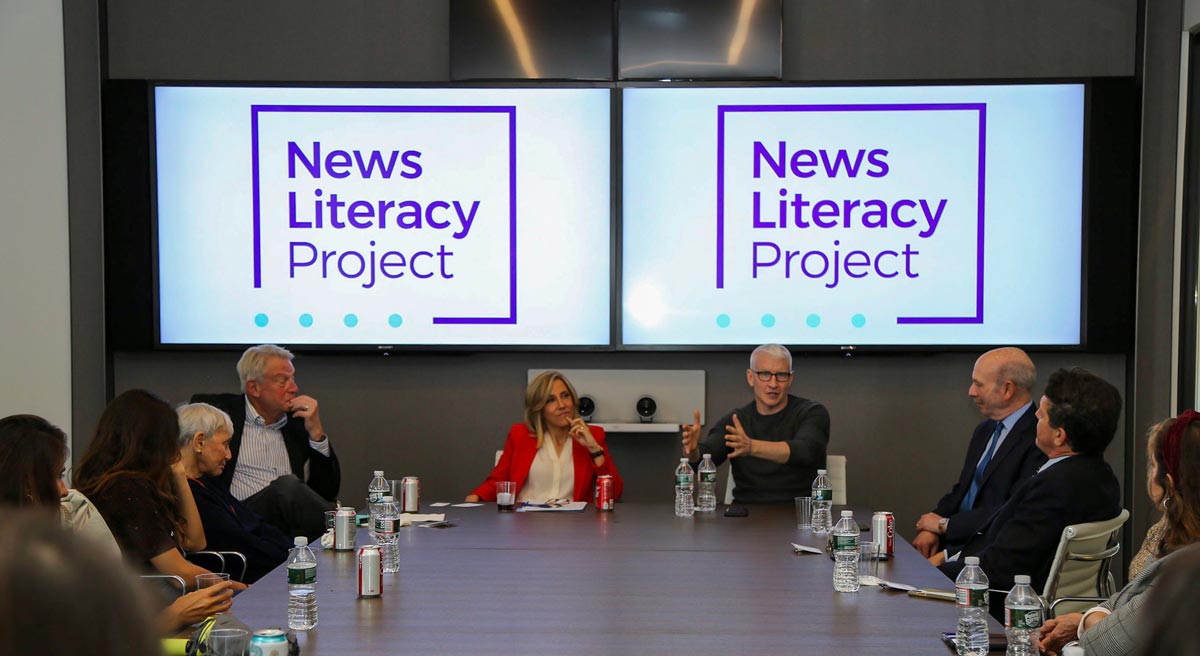
More Info
CNN's Alisyn Camerota and Anderson Cooper hosted the News Literacy Project at its new offices in New York City.
Photo by Miriam Romais/The News Literacy Project
CNN’s Camerota and Cooper talk journalism, news literacy with NLP
Anchors and executives at CNN welcomed supporters of the News Literacy Project to the network’s new headquarters in New York City’s Hudson Yards on Oct. 22 for a discussion about quality journalism and the importance of news literacy at a time when facts are competing for attention with overwhelming (and growing) amounts of “fake.”
Alisyn Camerota, the co-host of New Day, and Anderson Cooper, the anchor of Anderson Cooper 360°, led the discussion. Joining them were Poppy Harlow, anchor of CNN Newsroom; New Day co-host John Berman and executive producer Javier Morgado; Richard Davis, the network’s executive vice president of news standards and practices; and Alan Miller, the News Literacy Project’s founder and CEO.
Need for news literacy
Cooper and Camerota shared their insights into the speed of the news cycle, the challenges of providing balanced coverage in a highly partisan era, the methods they use to handle guests who stray from the facts, and ultimately, the growing need for news literacy.
“I don’t think people have understood that reporters during World War II were censored in terms of what they could report,” Cooper said. He noted that “there’s been an evolution of what reporters do and the role of reporters. But I do think getting that across to a new generation of people who are growing up watching this stuff by themselves and watching Infowars with as much curiosity and belief as something else — that’s alarming.”
Understanding ‘the rules of journalism’
Camerota, who is also a member of NLP’s National Leadership Council, concurred: “I don’t think that most news consumers know the rules of journalism,” she said, adding: “People think we are anti-government or anti-president or anti-something, not knowing that we’re the people who are tasked with pointing out hypocrisy and pointing out discrepancies.”
Today, she said, “news consumers now go to their corners and they go to wherever they get confirmation bias. … Part of why the News Literacy Project appeals to me so much is that it breaks down where you actually look for facts, it breaks down how you can tell if a photo has been Photoshopped, and it breaks down what you need to look for in a byline.”

